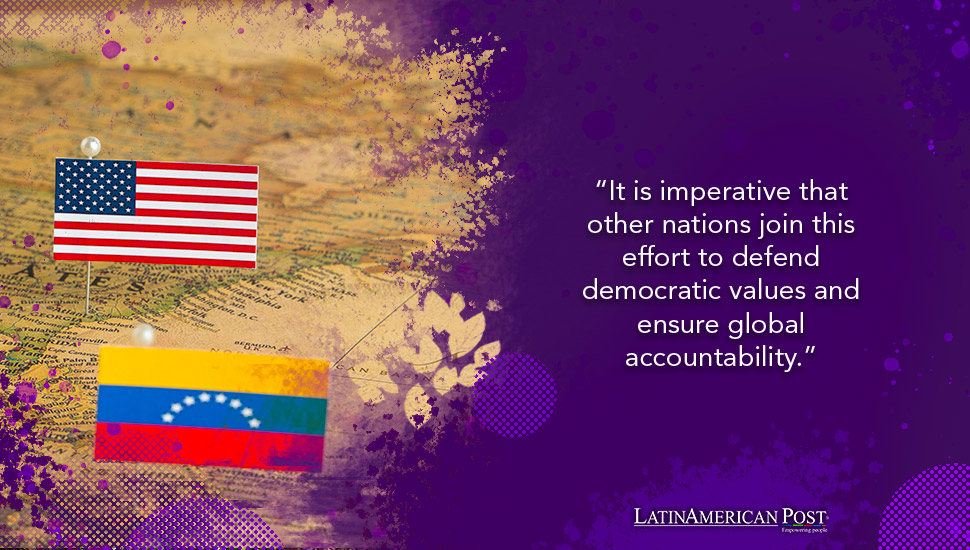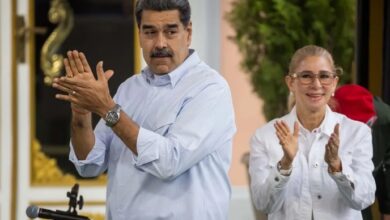New Sanctions on Venezuela: A Necessary Step for Global Accountability

The United States considers new sanctions on Venezuela following disputed presidential election results. This decisive action is crucial, and other nations should join to ensure global accountability and support democratic processes
The recent presidential election in Venezuela has sparked international controversy and concern. Disputed results have led the United States to consider imposing fresh sanctions on the country, particularly targeting officials linked to the election. This move is not only justified but necessary. In fact, it is imperative that other nations join in this effort to uphold democratic values and ensure global accountability.
The Case for Sanctions
The situation in Venezuela is dire. The head of the National Electoral Council (CNE) has declared President Nicolas Maduro the winner, despite opposition candidate Edmundo Gonzalez also claiming victory. Numerous countries and election observers have demanded the complete publication of results before recognizing the outcome. The call for transparency is not just about ensuring fairness in Venezuela but about maintaining the integrity of democratic processes worldwide.
Sanctions, though often criticized for their economic impact, serve as a powerful tool for promoting accountability and justice. In the case of Venezuela, targeted sanctions against individuals involved in electoral manipulation can send a clear message: the international community will not tolerate actions that undermine democracy. By holding these individuals accountable, the U.S. can support the Venezuelan people’s right to a free and fair election.
Why Other Countries Should Join
The U.S. is not alone in its stance. Many global leaders and election observers have expressed doubts about the legitimacy of Maduro’s victory. This widespread concern highlights the need for a unified response. When nations collectively impose sanctions, the impact is magnified, increasing pressure on the offending government to comply with international standards.
Joining the U.S. in sanctioning Venezuelan officials can demonstrate a commitment to upholding democratic values and human rights. It shows that the international community stands together in the face of injustice. Moreover, a multilateral approach can prevent the targeted country from simply shifting its alliances and economic dependencies to non-participating nations, thereby reducing the effectiveness of the sanctions.
Addressing Criticisms of Sanctions
Critics of sanctions argue that they often hurt the general population more than the targeted officials. While this concern is valid, it is important to note that the proposed measures include individual sanctions and travel bans on specific Venezuelan officials. Such targeted sanctions are designed to minimize collateral damage to the broader population while maximizing pressure on those responsible for the election’s manipulation.
Additionally, the U.S. and other sanctioning countries can and should couple sanctions with humanitarian aid. Providing support to Venezuelan citizens can alleviate some of the economic hardships they face, ensuring that the sanctions do not exacerbate their suffering. This dual approach can maintain pressure on the government while supporting the populace.
The Role of the International Community
The international community has a moral and strategic interest in promoting democratic governance. When elections are manipulated and authoritarian regimes cling to power, it undermines global stability and security. By standing firm against such actions, the international community reinforces the principles of democracy and the rule of law.
Moreover, supporting democratic movements in countries like Venezuela can set a precedent for other nations experiencing similar struggles. It shows that the world is watching and that there are consequences for subverting democratic processes. This can inspire and embolden opposition movements in other countries, fostering a global environment where democracy can thrive.
Immediate Actions and Long-Term Goals
In the short term, the U.S. and its allies should implement the proposed sanctions swiftly and decisively. This immediate response can prevent the Maduro regime from consolidating power further and potentially deterring future electoral manipulation. However, it is equally important to have a long-term strategy in place.
This strategy should include ongoing diplomatic efforts to support democratic institutions in Venezuela. It should also involve collaboration with international organizations such as the United Nations and the Organization of American States to monitor the situation and provide assistance where needed. By maintaining a consistent and unified approach, the international community can help ensure that Venezuela moves towards a more democratic and transparent future.
Also read: Venezuela’s Disillusioned Ex-Socialists Now Support the Opposition
The United States’ consideration of new sanctions against Venezuela is a crucial step in promoting global accountability and supporting democratic processes. The international community must join in this effort to send a clear message that electoral manipulation and authoritarianism will not be tolerated. Through targeted sanctions, diplomatic pressure, and humanitarian support, nations can help pave the way for a fair and democratic future in Venezuela. This unified stance not only aids the Venezuelan people but also strengthens the global commitment to democracy and human rights.




